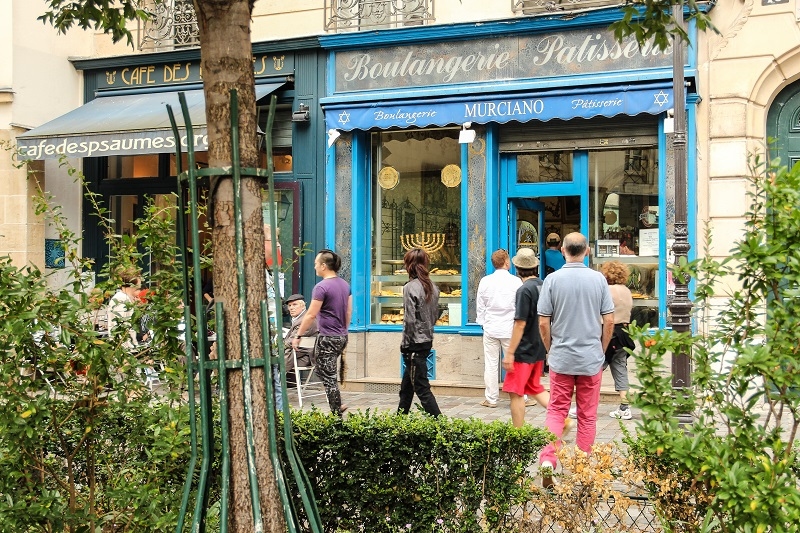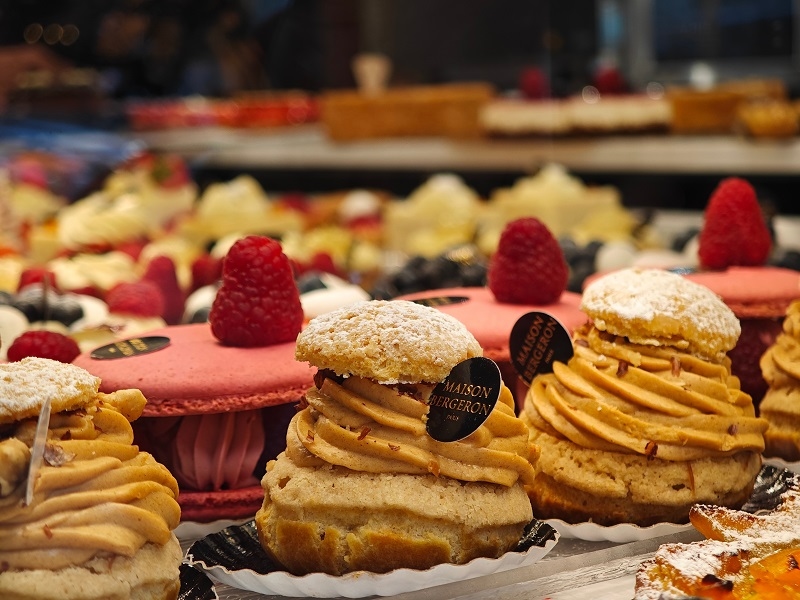
Paris is famously dubbed the world's culinary capital of haute cuisine and patisserie, but in the shadow of the iconic croissants and macarons lies a culinary gem: an authentic Jewish bakery Paris adores. French Jewish communities have maintained a rich heritage of bread, pastry, and sweets for over four centuries that tells a story of migration, survival, and family tradition. Today, to enter one of them in the Marais neighborhood or secondary streets is to step back in time with flavors that are very much alive.
If you're traveling from the U.S. and are looking for something different from the usual French desserts, then here's your chance to sample Jewish desserts in Paris, oven-fresh challah, and family heirloom recipes. To help you out, we've prepared a Kosher Bakeries Paris Guide to highlight the best establishments, what to order, and why Jewish bread culture is such an important part of French cuisine.
Paris is usually thought to be a baguette and pain au chocolat country. However, Jewish immigrants from Eastern Europe and North Africa brought their recipes to the Parisian patisserie. The actual Jewish bakery tradition in Paris blends Ashkenazi staples like rugelach and babka with Sephardic staples like almond cookies and honey-drenched pastry.
These patisseries are more than just food; they are bearers of memory. Jewish Parisians continued their culinary tradition generation by generation through war, migration, and diaspora. Each challah braid, cheesecake, or hamantaschen is more than a dessert but a signifier of cultural identity. So, kosher patisseries Paris remain a hit not just among Jewish locals but even among food tourists who wish to taste something meaningful and delicious.
For American travelers who are used to deli bagels and local Jewish bakeries back home, the Parisian scene takes some getting used to. Visiting an authentic Jewish bakery Paris has in store:
For the reader in the U.S., it is not just about dessert, but about living history in one of the most lovely cities on earth.
No good Kosher Bakeries Paris guide would be finished without leading you in the direction of some of the city's best. While there are many great ones out there, here are a few that are worth mentioning.
Famous for North African-spiced sweets, Murciano offers delicate almond pastry, baklava, and honey cake. Stop by if you'd like to try Sephardic Jewish pastry in Paris.
By far the most well-known actual Jewish bakery that visitors to Paris simply must sample, Korcarz has been a fixture since the 1940s. Babka, strudel, cheesecakes, and rugelach fill its shelves, making it an ideal exemplar of Ashkenazi tradition in France.
Half bakery, half deli, Florence Kahn is just as well-known for its savory treats as for its sweet ones. Its strudel and poppy-seed roll are legendary, and it is one of the most photographed kosher patisseries in Paris since it has such a charming storefront.
Hidden from tourists, this small shop offers traditional challah, French style, freshly baked, as well as cakes and cookies. It's a visit to a neighborhood bakery where families still pop in to pick up their Shabbat bread.
All of these bakeries serve to highlight the richness of Jewish bread traditions that travelers can discover. Ashkenazi or Sephardic, sweet or savory—a slice of history awaits.

French Jewish desserts in Paris feature old classics and new ones inspired by French-style baking. The following are the most delightful among them:
These kosher patisserie desserts in Paris are as much about tradition as they are taste. Should you have a sweet tooth or simply enjoy experimenting with food culture, then every bite introduces you to centuries of tradition.
One of the pleasures of visiting a real Jewish bakery Paris is the opportunity to sample challah. Golden crust, braided loveliness, challah is more than bread; it's a ritual centerpiece of Jewish life. French bakers have created their own adaptation of traditional challah France style: light within, with a just-right sweetness and shine.
For travelers from the U.S., tasting challah in Paris is both familiar and surprising. You’ll recognize the comforting texture, but the French influence—perhaps a touch more butter or a different flour blend—makes it a unique cultural twist. Pairing challah with French cheeses or jams is another delightful experience that showcases cross-cultural food journeys. This bread is also connected to Jewish bread traditions, illustrating how a recipe can travel, evolve, and remain an integral part of identity.
Bread is the most universal of foods. Within the Jewish tradition, however, it holds sacred significance. From Passover matzah to Shabbat braided challah, bread is a narrative of survival, ritual, and celebration. Investigating Jewish bread traditions in Paris tells us how communities sustained identity through food.
To step into a traditional Jewish bakery Paris is to step into the past. Each loaf of challah evokes generations of family Shabbos tables, and babka conjures up celebratory holidays in Eastern Europe. Even a simple-appearing rye or seeded bread holds centuries of tradition. For food travelers who see food as a cultural connection, this is one of the most satisfying Paris experiences.
The most perfect way to round out the real Jewish bakery Paris experience is to complement it with a stroll through Le Marais. The historic Jewish quarter is full of kosher delis, synagogues, bookstores, and museums. You can stroll along cobblestone streets, visit the Musée d'Art et d'Histoire du Judaïsme, or stop by falafel stands that are just as much of an institution.
Here is where the cultural exploration organically meets with the kosher Paris bakery guide. Food is only the start; the full Marais experience enables U.S. travelers to get immersed in Paris Jewish life today.
Here are a few tips.
Paris is famous for its éclairs and mille-feuilles, but an authentic Jewish bakery Paris experience offers more - a taste of culture, history, and survival. Next time you’re in France, take a break from the croissants. Step into one of the kosher patisseries Paris offers, and let the flavors of heritage transport you. After all, what better way to travel than by eating history—bite by bite, crumb by crumb.
This content was created by AI